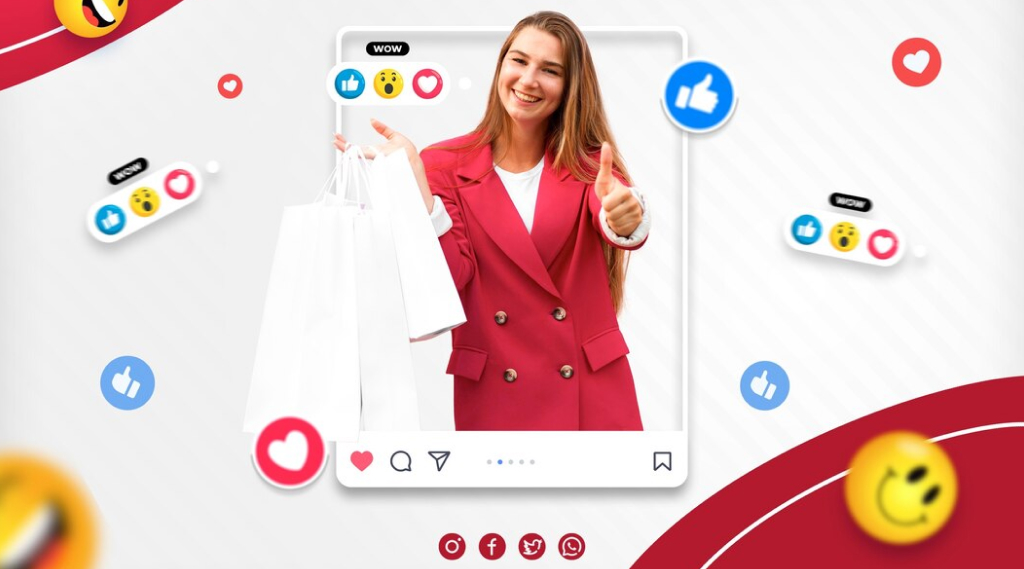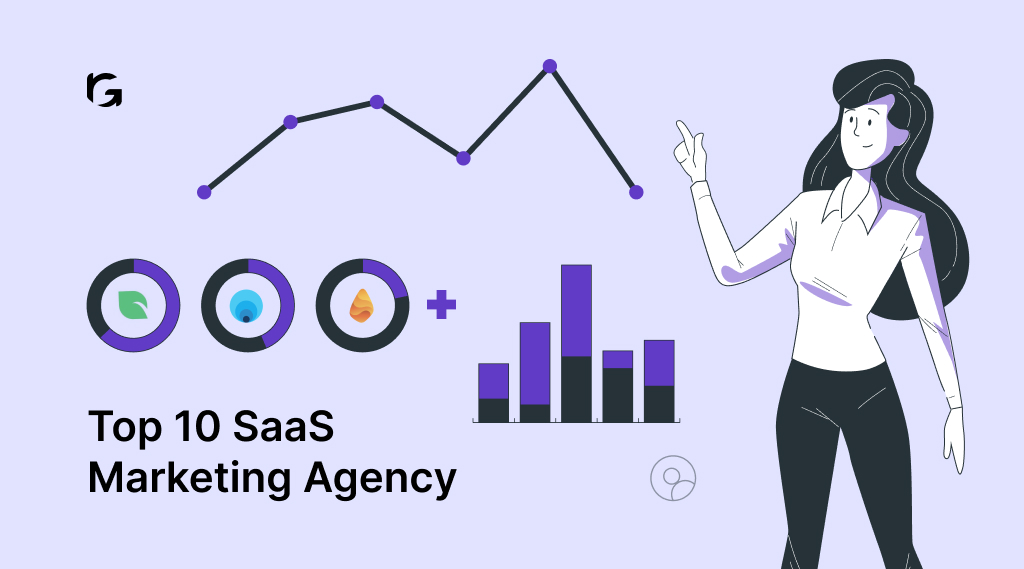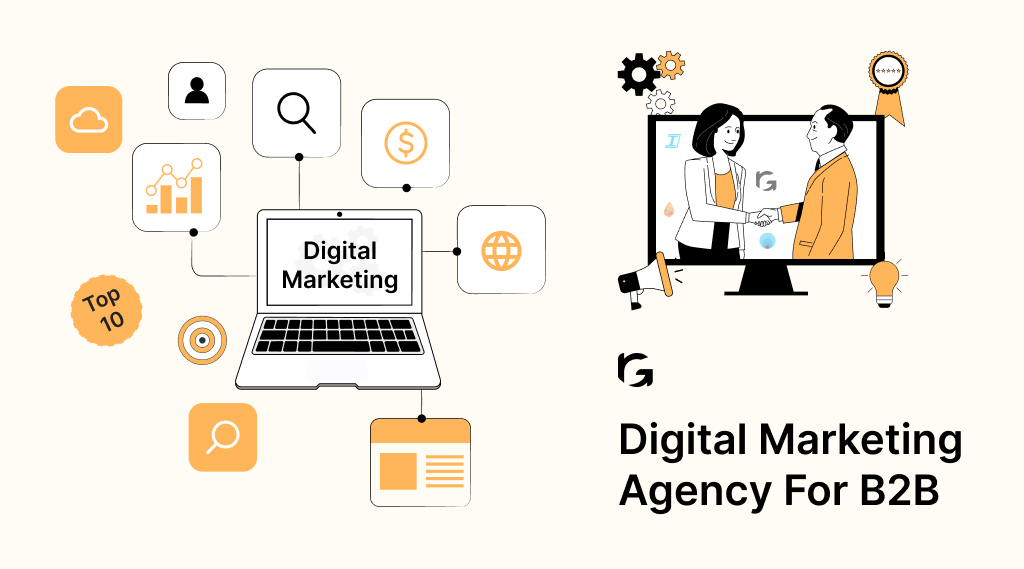One strategy that has continued to captivate the attention of B2B professionals and marketers alike is B2B Influencer Marketing.
In this article, I will explain in detail what influencer marketing is, strategies your business can use, and trends to watch out for in the influencer space, particularly in demand generation channels.
What is b2b influencer marketing?
B2B Influencer Marketing is when businesses collaborate with influential people to promote their products or services. Instead of directly advertising, brands team up with individuals who have a significant online presence. These influencers, often experts or popular figures in their industry, share content endorsing the business.
In this type of marketing, the focus is on building trust and credibility. The influencer’s audience sees them as reliable sources, so when they recommend a product, it’s likely to be well-received. Businesses benefit by reaching a wider audience and gaining credibility through the influencer’s endorsement.
The process involves identifying suitable influencers, establishing partnerships, and creating content that aligns with both the business and the influencer’s brand. This collaboration can happen on various platforms like social media, blogs, or podcasts.
How is B2B influencer marketing different from B2C?
Let’s see how different is B2B Influencer Marketing from b2c Influencer marketing
| Basis of Distinction | B2B Influencer Marketing | B2C Influencer Marketing |
| 1. Audience Dynamics | Decision-making in the B2B realm is often a collective endeavour, involving multiple stakeholders within an organization.. | B2C transactions are typically more individualistic, with consumers driven by personal needs, desires, and emotions. The purchasing decisions are often quicker and influenced by factors like trends, emotions, and personal preferences. |
| 2. Relationship Building | B2B transactions are characterized by long-term relationships, intricate negotiations, and a focus on mutual growth. Trust and credibility play pivotal roles, making influencer partnerships instrumental in establishing and reinforcing industry authority. | B2C interactions are more transactional, driven by immediate needs and desires. While influencers in B2C can impact purchasing decisions, the emphasis is often on relatability, entertainment, and lifestyle alignment. |
| 3. Content Complexity | The B2B decision-making process is intricate, involving thorough research, evaluations, and considerations of long-term benefits. Influencer content in B2B must, therefore, be informative, educational, and tailored to address the specific challenges faced by businesses. | B2C content tends to be more emotionally driven, focusing on aesthetics, lifestyle, and relatability. Influencers often showcase products/services in a way that resonates with the personal aspirations and identities of individual consumers. |
| 4. Sales Cycle Duration | B2B sales cycles are usually longer due to the complexity of decision-making, involving multiple touchpoints and stages. Influencer marketing in B2B contributes to building trust and maintaining engagement throughout this extended journey. | B2C sales cycles can be comparatively shorter, with consumers making more impulsive buying decisions. Influencers in B2C often drive quick conversions by tapping into the immediacy of consumer desires. |
| 5. Key Performance Indicators (KPIs) | Metrics such as lead generation, conversion rates, and the impact on the sales funnel are critical KPIs in B2B Influencer Marketing. | Metrics in B2C, on the other hand, may include reach, engagement, and the direct impact on sales, reflecting the more direct and immediate nature of consumer transactions |
7 b2b influencer marketing benefits
Let’s explore seven benefits that make B2B influencer marketing a smart move for your business.
1. Enhanced credibility and trust:
- Influencers in your industry boost your business’s credibility.
- Trusted by their followers, influencers lend endorsement to your product or service.
- Transfers trust to your brand, impacting potential clients’ perceptions positively.
- Increases likelihood of trust and engagement with your business.
- Enhances reputation and establishes a positive connection with the target audience.
2. Expanded reach and exposure:
- Influencers bring B2B offerings to a wider audience with significant social media and other channel followers.
- Endorsement by influencers opens doors to new prospects.
- Acts as a bridge, connecting your business with potential clients beyond usual reach.
- Increases brand visibility and creates opportunities to engage with fresh leads.
- Fosters growth and expands your presence in the market.
3. Authentic audience engagement:
- Influencer marketing provides a genuine way to connect with the target audience.
- Influencers interact with followers on a personal level, making your brand’s message feel like a trusted recommendation.
- Creates authentic engagement, fostering meaningful connections with potential clients.
- Builds a rapport that goes beyond typical advertising.
4. Cost-effective marketing strategy:
- B2B influencer marketing is cost-effective compared to traditional advertising.
- Partnering with influencers allows direct access to established communities.
- Results in a higher return on investment.
- Enables marketing budget to stretch further for more impactful results.
5. Increased thought leadership:
- Teaming up with influencers positions your business as a thought leader.
- Influencers sharing your insights or endorsing your expertise elevates your brand’s standing.
- Recognition contributes to a positive perception of your business.
- Potential clients are more inclined to choose your offerings over competitors.
6. Improved content strategy:
- Influencers excel at crafting engaging and relevant content.
- Collaboration with influencers allows your business to leverage their creativity.
- Enhances your content strategy through blog posts, videos, or social media content.
- Influencers bring a fresh perspective that resonates with the target audience.
- Makes your brand more appealing and ensures dynamic and captivating content.
7. Measurable impact on conversions:
- B2B influencer marketing offers a measurable impact on conversions.
- Utilizing tracking tools and analytics, businesses can monitor the performance of influencer collaborations.
- Data provides valuable insights into the effectiveness of campaigns.
- Empowers refinement of strategy and optimization for better results.
- Ability to measure and analyze outcomes enhances overall efficiency and success of marketing initiatives.
5 b2b influencer marketing trends in 2024
B2B influencer marketing in 2024 is characterized by the rise of micro-influencers, the dominance of video content, a focus on authentic storytelling, inclusive partnerships, and the integration of AI and data analytics.
Let’s learn about these trends below:
1. Rising popularity of micro-influencers
In 2024, B2B influencer marketing is witnessing a shift towards micro-influencers. These influencers, with a smaller but highly engaged audience, offer a more authentic and relatable connection.
For instance, a small business software company might collaborate with a micro-influencer who specializes in providing time-management tips for entrepreneurs. This targeted approach ensures a more impactful and cost-effective reach.
2. Video content dominance
Video content is taking the lead in B2B influencer marketing. Short, engaging videos on platforms like TikTok and LinkedIn are becoming the norm. B2B influencers are leveraging this trend to share quick insights, product demonstrations, and behind-the-scenes glimpses.
A tech influencer, for instance, could create a brief video showcasing the practical applications of a new software solution, making complex information more digestible for the audience.
3. Authentic storytelling for trust building
Authentic storytelling is gaining prominence as B2B influencers focus on building trust with their audience. Sharing personal experiences and genuine insights creates a connection that resonates with businesses.
An influencer in the cybersecurity industry might share a real-life incident where a client’s data was protected due to a specific product, emphasizing trustworthiness and reliability.
4. Inclusive influencer partnerships
In 2024, there is a noticeable rise in inclusive influencer partnerships, focusing on diversity and representation. B2B influencers are collaborating with individuals from different backgrounds, ensuring a broader perspective.
For instance, a sustainability-focused company may partner with an influencer who specializes in eco-friendly practices, showcasing a commitment to inclusivity and environmental responsibility.
5. Integration of AI and data analytics
B2B influencer marketing is becoming more data-driven with the integration of artificial intelligence (AI) and data analytics. Influencers are leveraging these technologies to analyze audience behavior, preferences, and engagement metrics. This data-driven approach allows influencers to tailor their content for maximum impact.
A marketing influencer, for example, might use AI tools to analyze customer interactions and create content that resonates with their specific needs.
8 B2b influencer marketing strategies you need to know
Here, we break down B2B influencer marketing strategies that work without any jargon.
1. Identify your niche influencers: Start by finding influencers in your industry. Look for those who share content related to your products or services. For instance, if you sell software, connect with influencers who talk about technology solutions.
Example: A cybersecurity company collaborates with a tech blogger who educates his audience about online threats.
2. Authentic relationship building: Build real connections with influencers. Engage with their content, comment, and share. This creates a genuine relationship, making them more likely to collaborate with your brand.
Example: An e-commerce platform regularly interacts with a popular business podcaster, creating a strong bond before proposing a collaboration.
3. Quality over quantity in content creation: Focus on creating high-quality content that adds value. Influencers appreciate content that resonates with their audience, increasing the chances of them sharing it.
Example: A marketing agency creates an informative infographic on industry trends, shared by an influencer with a large following.
4. Leverage employee advocacy: Encourage your employees to become brand advocates. They can share company content and help in reaching a wider audience.
Example: A manufacturing company involves its employees in sharing behind-the-scenes videos, showcasing the human side of the business.
5. Micro-influencers can make a macro impact: Consider working with micro-influencers who have a smaller but engaged audience. They often have higher interaction rates, leading to more genuine connections.
Example: A small accounting software company partners with local business consultants, tapping into their dedicated client base.
6. Showcase user-generated content: Encourage your customers to create content showcasing your products or services. Share this content, giving your brand authenticity and building trust.
Example: A software-as-a-service (SaaS) company shares screenshots and testimonials from satisfied users, amplifying positive experiences.
7. Align influencers with your brand values: Choose influencers who align with your brand values. This ensures that their audience matches your target demographic and is more likely to be interested in your offerings.
Example: A sustainable packaging company collaborates with influencers passionate about environmental issues, reaching an audience committed to eco-friendly practices.
8. Track and analyze performance metrics: Regularly monitor the performance of your influencer collaborations. Use tools to track metrics like engagement, clicks, and conversions to evaluate the success of your efforts.
Example: A business consultancy uses analytics tools to measure the impact of an influencer’s webinar on website traffic and lead generation.
Let’s wrap up
B2B influencer marketing in 2024 is all about building genuine connections, sharing authentic stories, and embracing emerging trends like micro-influencers and video content. By collaborating with niche influencers, fostering real relationships, and creating high-quality content, businesses can extend their reach, earn trust, and generate interest in their
offerings.
As the landscape evolves, it’s crucial for B2B marketers to adapt, innovate, and stay true to their brand values while leveraging the power of influencer partnerships. With a strategic approach and a focus on authenticity, B2B influencer marketing remains a valuable tool for driving success in the digital age.
Ready to supercharge your demand generation? Check this out to learn how!
FAQs
Q: How can micro-influencers benefit b2b marketing strategies?
Micro-influencers, with their smaller yet engaged audiences, can offer a more targeted and cost-effective approach in B2B influencer marketing. This FAQ explores the advantages of working with micro-influencers and their impact on niche markets.
Q: Why is authentic storytelling important in b2b influencer marketing?
Explore the importance of authentic storytelling in establishing trust and credibility within the B2B influencer marketing landscape. Learn how sharing genuine experiences and insights can create a stronger connection with the target audience.
Q: What does inclusive influencer partnerships mean in b2b marketing?
Understand the concept of inclusive influencer partnerships and their relevance in B2B marketing. This FAQ explores how collaborating with influencers from diverse backgrounds enhances representation and widens the perspective within the industry.
Q: How can b2b influencers measure the success of their campaigns?
Discover key performance indicators (KPIs) and measurement tools used by B2B influencers to evaluate the success of their marketing campaigns. This FAQ sheds light on metrics such as engagement rates, lead generation, and audience growth.


